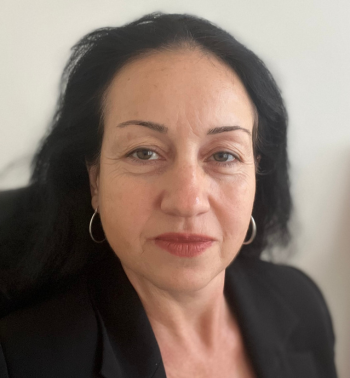11 February 2025
What is your role within King’s Health Partners?
I am a Postdoctoral Research Associate at the Cicely Saunders Institute, King’s College London, leading research on patient-centred outcomes for the NIHR South London ARC Palliative and End of Life Care theme. In one such study, to improve palliative care communication and patient-centred outcomes with key stakeholders we co-produced a short film and an infographic.
Recently I have led a European proposal to improve holistic, equitable, and culturally sensitive patient assessment particularly for individuals with serious illnesses, multimorbidity, and complex needs. King’s Health Partners’ (KHP) support has been instrumental in all these activities.
What do you enjoy most about your role?
I love seeing research drive real-world change—being a researcher is an opportunity to rethink, reimagine, and improve practice. As a measurement scientist, I am passionate about not only generating knowledge but also mobilising research into practice. Co-designing resources with patients, public stakeholders, and healthcare leaders in projects like CovPall-Partners ensures research is accessible and impactful.
Being part of the Patient Outcomes Committee at King’s College Hospital NHS Foundation Trust and the Palliative Outcome Scale Team at King’s College London pushes me to think beyond research, engaging with the clinical context, challenges, and feasibility of implementation. Working with KHP and global networks, I continuously learn, collaborate, and advance patient-centred care.
What inspired you to get into this work?
My passion for patient-centred care and health equity is deeply personal. Born in a conflict zone, I have faced displacement, systemic barriers, and inequities. Studying International Public Health at Oxford shaped my understanding of global health systems, while a Fulbright fellowship at Harvard reinforced the power of culturally inclusive patient assessments in generating patient-centred evidence to inform practice.
I am committed to developing inclusive patient-centred outcome measures, developing intelligent, responsive, inclusive and personalised measurement systems that enable holistic frameworks that integrate physical, psychological, social, and spiritual needs, ensuring that patient voices drive healthcare decisions, improve access, and advance equity worldwide.
How will your work impact the lives of people?
My work ensures patient voices drive healthcare decisions by developing intelligent, responsive, and inclusive measurement systems that personalize care. The CovPall-Partners study demonstrated how clear, accessible communication empowers patients and families to make informed choices about palliative care, improving awareness and access through co-produced films and infographics.
I am developing a holistic, culturally sensitive patient assessment framework that integrates physical, psychological, social, and spiritual needs. By leveraging global networks and patient-centred outcomes research, my work helps shape clinical decisions, leading to earlier referrals, better symptom management, and improved quality of life, especially for underserved and multicultural communities.
What are the benefits of working in partnership?
Partnerships foster innovation, shared learning, and meaningful impact. KHP connects me with academia, NHS Trusts, and global organisations, helping to ensure research translates into better patient care. CovPall-Partners demonstrated how co-designing with patients and stakeholders makes research more accessible and applicable.
Collaborative networks provide the foundation for bringing proposals like mine—focused on integrating intelligent, responsive, and personalised measurement systems—closer to reality. Working with partners, from Institute of Cancer Policy at King’s College London to India’s leading cancer charity, has shown me how strategic collaboration bridges research, policy, and clinical care to advance patient-centred outcomes and healthcare equity.
What would be your career top tips?
Keep patients at the centre—their voices, along with PPIE members and communities, must shape research and healthcare decisions. Collaborate widely across disciplines to address complex healthcare challenges. Translate research into action to ensure meaningful improvements in clinical care and policy.
Engage in global health—my experiences at Harvard, Oxford, and São Paulo University reinforced the need for culturally adaptable solutions. Learn from and support others—mentors, colleagues, students, and PPIE members offer invaluable insights.
Be proactive, resilient, and inclusive, and let experiences drive motivation. Make research accessible and always acknowledge those who contribute to your work.





